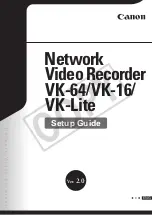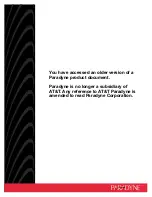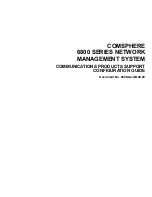
28-16
Cisco BPX 8600 Series Installation and Configuration
Release 9.3.30, Part Number 78-12907-01 Rev. E0, May 2005
Chapter 28 Troubleshooting
BME Connection Diagnostics
BXM Back Card LED Green and Yellow Indications
Description:
Prior to an APS switch, the active card LED is green and the standby card LED is yellow.
After the APS switch, both LEDs are green
Explanation:
The BXM back card LED is meant to show whether the card is currently being used at this
time. Green means that this card is in use. Yellow means that the card is not in use and could be removed
for service. If the standby line’s card’s LED is green it means that part of this card is being used at this
time. This could happen due to the APS 1+1 cross-over circuit where the working line’s front card is
active but the protection line itself is active. The working line’s back card is being used to shunt traffic
to the protection line’s back card.
BXM Port LED States
Scenario:
For an APS 1+1 or APS 1:1 line pair, the port LEDS are the same color on the working and
protection line.
Explanation:
To switch software, the APS line pair is a single logical line. Although required to send
BXM messages to both lines, these messages are the same message. Thus switch software cannot send
different LED states to the BXM for the same APS line. The BXM firmware makes the protection line
LED state the same as the working line LED state.
BME Connection Diagnostics
The following are the commands used for BME connection diagnostics:
•
tstconseg
and
tstdelay
commands may be used to troubleshoot a leaf connection both from the BME
end point as well as on the other end point.
•
tstconseg
is available on the root connection only on the non-BME end point.
•
tstconseg
is not supported from the BME end of the root connection.
•
tstdelay
is not supported on root connections.
Troubleshooting VSI Problems
This section describes how different types of channels are allocated (VSI, Automatic Routing
Management), and how to troubleshooting some problems related to VSI. Note that some or all of the
commands discussed in this section require service-level or above user privileges. To access these
commands, you must have debug (Service or StrataCom level) privileges and passwords. Check with
TAC for assistance.
How Channels Are Allocated and Deallocated
To understand channel allocation and deallocations problems, it is important to understand how the
channels are distributed. The BXM card can support
x
number of channels. The value
x
varies between
different models of BXMs.
Summary of Contents for BPX 8650
Page 49: ...P A R T 1 The BPX Switch ...
Page 50: ......
Page 159: ...P A R T 2 Installation ...
Page 160: ......
Page 273: ...P A R T 3 Initial Configuration and Network Management ...
Page 274: ......
Page 311: ...P A R T 4 Configuring Connections ...
Page 312: ......
Page 487: ...P A R T 5 Troubleshooting and Maintenance ...
Page 488: ......
Page 533: ...P A R T 6 BPX Specifications ...
Page 534: ......
Page 555: ...P A R T 7 Appendices ...
Page 556: ......
















































